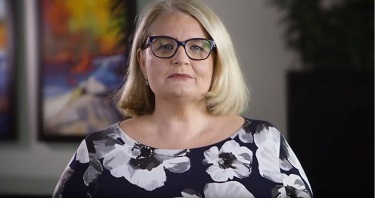
EDC commits to net zero emissions by 2050
Joins the growing international effort to dramatically reduce global greenhouse gas emissions

No matter where on the planet you live and work, the COVID-19 pandemic has shown (if there was ever any doubt) that we’re not immune to outside forces with the power to upend our reality. It’s also taught us that addressing a global crisis of such magnitude requires urgency and unity of purpose among global governments and private institutions alike.
We must heed both these lessons if we hope to overcome that other existential crisis of our time: climate change. To counter its detrimental impact will require a similarly urgent and global effort.
For almost a decade now, EDC has been taking steps towards becoming a bigger part of that effort. Since 2012, for instance, we’ve been focused on elevating Canada’s cleantech sector, and have grown that investment consistently year over year since then. Last year alone we helped 288 companies, facilitating $4.5 billion in cleantech business. In 2019, we took the major step of publishing EDC’s first-ever dedicated Climate Change Policy, which outlines how EDC will approach climate change-related risks and opportunities going forward.
Beginning July 2021, we’ve now taken our most significant step yet - committing to net zero emissions by 2050.
What does this mean? First, that we’ll greatly reduce our own operational emissions, like those produced by employee travel and our office buildings. With several initiatives already underway led by a dedicated ‘green team,’ we’re confident that we can reach net zero operational emissions by 2030.
Second, we’ll reduce our portfolio exposure to carbon-intensive industries, while also working with customers in those sectors to help them reduce their emissions. One of the keys to EDC going net zero will be our customers pursuing net zero emissions themselves.
We will continue to support these sectors because our mandate is to serve the entirety of the Canadian economy. We also believe that sectors like energy will play a key role in the transition to a low carbon future, and we aim to be an agent of change within them.
As such, there will be residual emissions in EDC’s net zero scenario, and that leads to the third part of the equation – sustainable financing. EDC will increase the share of our book of business focused on low or no-emission business, as well as finance projects and companies that capture, use or store emissions that are already in the atmosphere. This financing includes our solutions for clean technology companies, green bonds and sustainable lending.
For more details on EDC’s decision to pursue net zero emissions by 2050, please see this backgrounder.
EDC's Path to Net Zero
This document details EDC's pathway to net zero by 2050 including steps, considerations and decisions.
By making this choice, EDC is joining a growing international movement. The net zero commitment has been made by the Government of Canada, along with more than 100 other countries and countless organizations around the world, with more joining every day. It’s a necessary step toward keeping global warming to below two degrees Celsius by 2050 – a central aim of the 2015 Paris Agreement.
Going net zero is also part of EDC’s broader efforts to strengthen our environmental, social and governance (ESG) practices – a values-based approach to business that is foundational to our operations and underpins our new 2030 business strategy, which was unveiled earlier this year.
During a recent panel on ESG that I moderated with our President and CEO Mairead Lavery, I asked her for the three words she associated most with our actions on climate. The words she chose were - leader, impact and speed.
Being a global financier that prioritizes ESG affords us a unique opportunity to influence the companies we work with, and that’s how we’ll lead – by example. Reducing our own emissions while at the same time helping some of our nearly 30,000 customers reduce theirs will magnify our impact. This isn’t only in terms of impact on the environment but also helping our customers grow. We know first-hand the difference that strong ESG practices can make in not just mitigating financial and reputational risks, but opening doors to new business opportunities that can lead to long-term and sustainable success.
Mairead’s last word was simply, speed. We need to act with urgency. By setting aggressive targets and committing to transparency in our pursuit of net zero, we’re making ourselves accountable to the global community for an ambitious and very urgent goal. This year, for example, we’re joining two groups: the Partnership for Carbon Accounting Financials (PCAF) which has emerged as the leading methodology for calculating portfolio emissions in the financial sector; and the Powering Past Coal Alliance (PPCA), which is a collection of political leaders and businesses advancing the transition from coal power to clean energy.
And just a few months ago, Mairead took the step of establishing the Chief Corporate Sustainability Officer role within EDC, which I was honoured to accept. As CCSO, I’m tasked with accelerating and embedding ESG further into our values, principles and processes across the organization and in our support of Canadian companies.
An important part of my job, of course, will be helping drive EDC to its net zero targets. This will require structural change within EDC, input and actions from employees across the organization as well as feedback from our customers, stakeholders and peers. It will, without a doubt, be challenging.
The stakes couldn’t be higher.
But we have the people to take it on. Their passion, their belief in EDC’s sustainability objectives and economic mission, these will be the driving force behind our efforts. We’ve also been building to this point for almost a decade, so I know we have the experience and expertise to get it done.
Something else that gives me confidence is how the organization has responded to the pandemic over the last 18 months. We’ve demonstrated our ability to step up, alongside government and financial partners, to make a difference when it matters most. Getting to net zero will require a similar effort.
And now, with a credible plan in place, the team to make it happen and the commitment and support from likeminded partners and customers - it’s time to get to work.
















